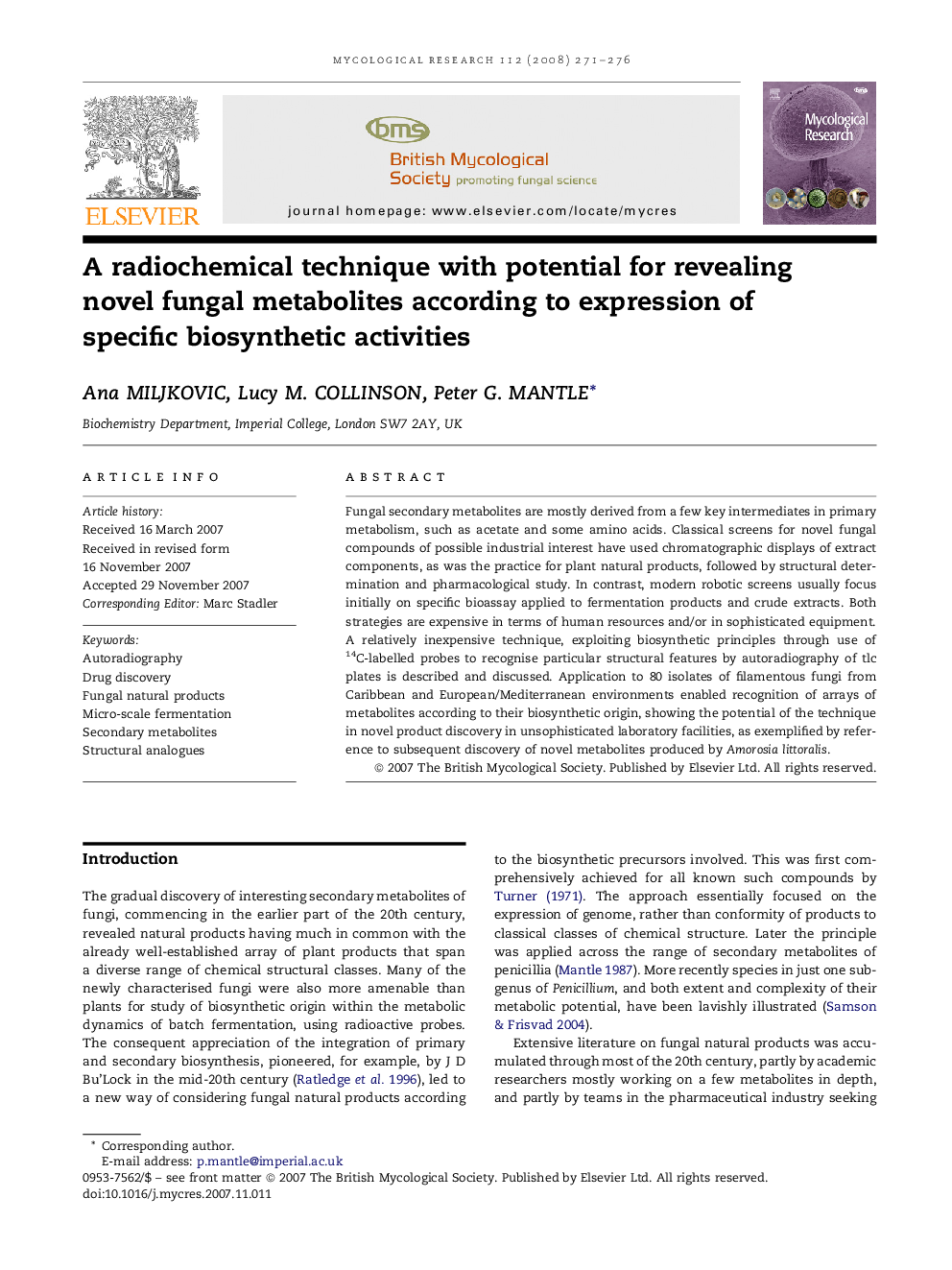| کد مقاله | کد نشریه | سال انتشار | مقاله انگلیسی | نسخه تمام متن |
|---|---|---|---|---|
| 4357849 | 1300109 | 2008 | 6 صفحه PDF | دانلود رایگان |

Fungal secondary metabolites are mostly derived from a few key intermediates in primary metabolism, such as acetate and some amino acids. Classical screens for novel fungal compounds of possible industrial interest have used chromatographic displays of extract components, as was the practice for plant natural products, followed by structural determination and pharmacological study. In contrast, modern robotic screens usually focus initially on specific bioassay applied to fermentation products and crude extracts. Both strategies are expensive in terms of human resources and/or in sophisticated equipment. A relatively inexpensive technique, exploiting biosynthetic principles through use of 14C-labelled probes to recognise particular structural features by autoradiography of tlc plates is described and discussed. Application to 80 isolates of filamentous fungi from Caribbean and European/Mediterranean environments enabled recognition of arrays of metabolites according to their biosynthetic origin, showing the potential of the technique in novel product discovery in unsophisticated laboratory facilities, as exemplified by reference to subsequent discovery of novel metabolites produced by Amorosia littoralis.
Journal: Mycological Research - Volume 112, Issue 2, February 2008, Pages 271–276